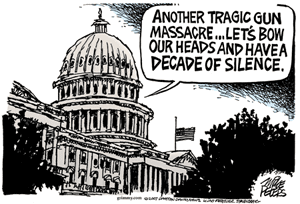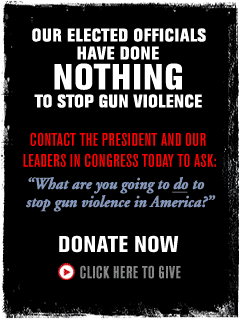Spy Scandal, Remains Co-Chair Of McCain Sportsmen’s Committee
ABC News reported Tuesday that the campaign of Sen. John McCain “sought to distance itself” from NRA lobbyist James Jay Baker because of his connection to the NRA spy scandal.
Baker was the former executive director at NRA-ILA when his deputy allegedly managed a spy who infiltrated the gun control movement.
Baker was also reported by the New York Times to be in McCain’s “kitchen cabinet,” contributed over $3,000 to McCain since 2006 and billed the NRA over $2 million in lobbying fees since 2002.
Mother Jones pointed out yesterday, however, that Baker remains listed as a co-Chair of the Sportsmen for McCain National Steering Committee:
… It stands to reason why the [McCain] campaign would want to draw a wide berth around Baker. Until 2002, Baker was the executive director of the NRA’s lobbying arm, the Institute for Legislative Action.
During his tenure, the ILA engaged the services of a now-defunct private security firm, Beckett Brown, which specialized in spying on activist groups. Beckett Brown’s point of contact at ILA was Baker’s deputy, Patrick O’Malley.
O’Malley also served as an NRA contact for Mary Lou Sapone, who, as Mother Jones reported in July, is a freelance spy who infiltrated the gun control movement for more than a decade on behalf of the gun lobby. When we contacted Baker seeking comment on Sapone’s work for the NRA, he said, “I don’t have anything to say about any vendors at the NRA.” And while maintaining that he had no knowledge of any efforts to penetrate the gun control movement while he was at the NRA, he added: “We got information from whatever sources we can.” The NRA has refused to comment on the Sapone story, declining to explain any possible relationship between the ILA and Sapone.
But if McCain intends on throwing Baker overboard, he has a strange way of showing it. On Thursday his campaign issued a press release announcing the leadership of the National Steering Committee of the Sportsmen for McCain coalition. And, along with Minnesota governor Tim Pawlenty and former Oklahoma governor Frank Keating, Baker is one of its co-chairs.…


